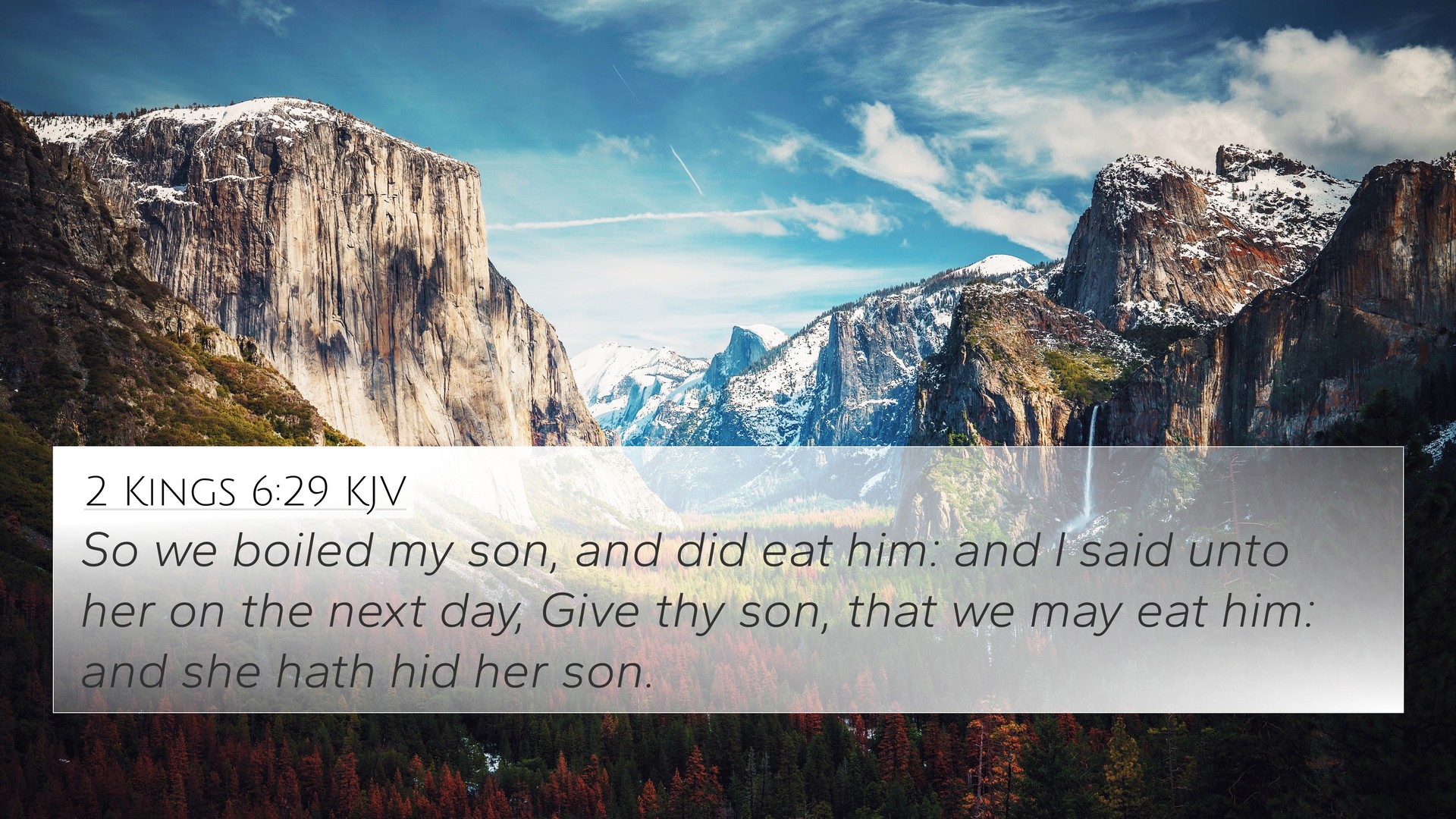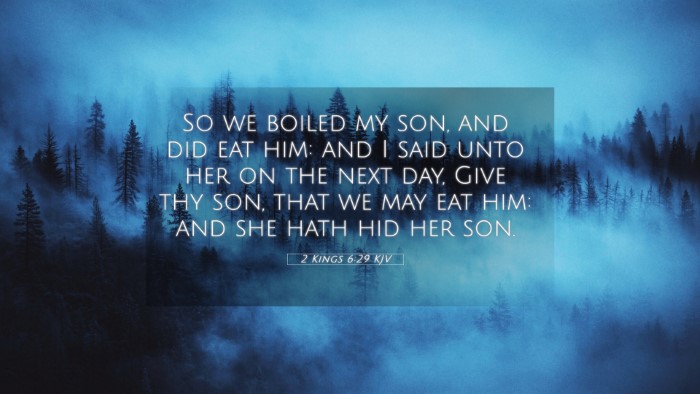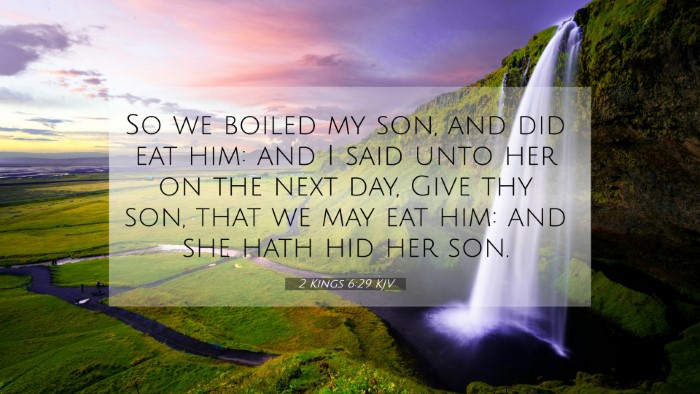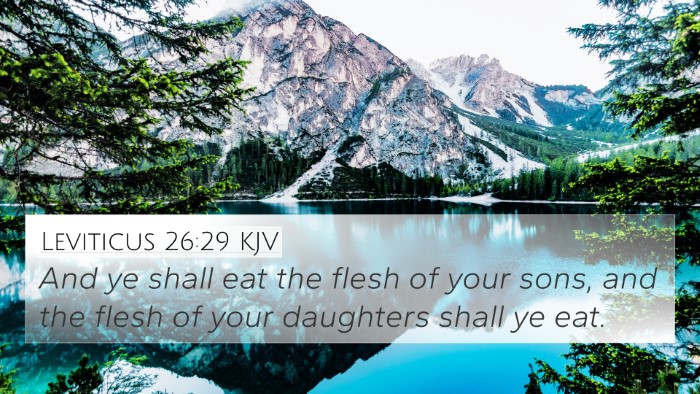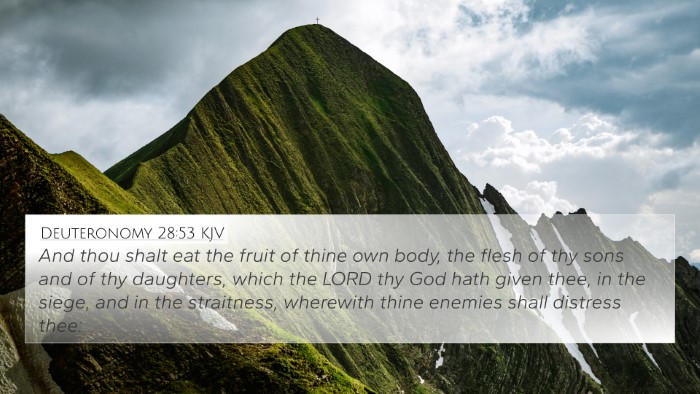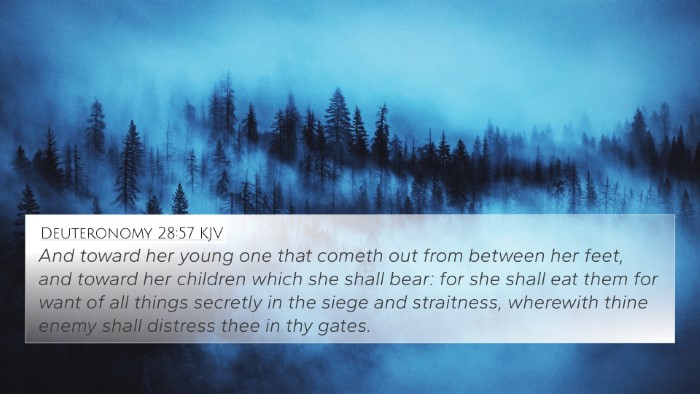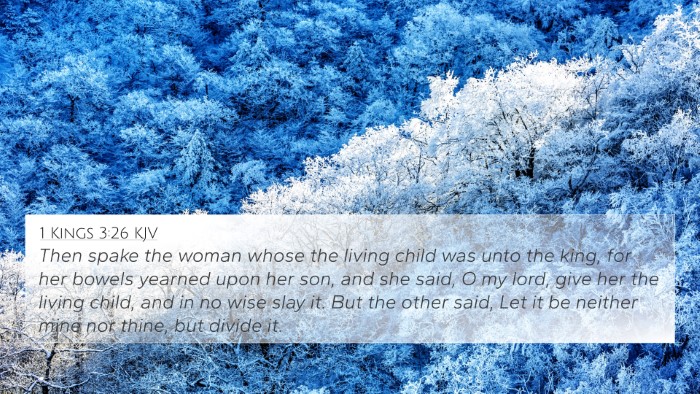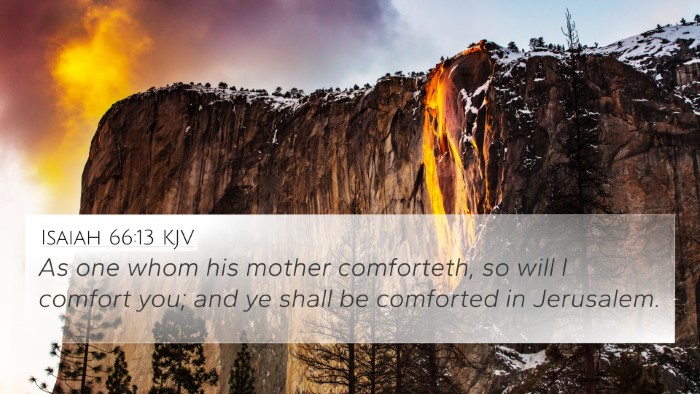Understanding 2 Kings 6:29
2 Kings 6:29 narrates a disturbing event during a time of great famine in Samaria, highlighting the depth of desperation in the city. Let’s dive into the meaning of this verse by synthesizing insights from various public domain commentaries, including those by Matthew Henry, Albert Barnes, and Adam Clarke.
Verse Context and Analysis
This verse reads: "So we boiled my son, and did eat him: and I said unto her on the next day, Give thy son, that we may eat him. And she hath hid her son." This grim picture signifies the extreme measures the people were driven to during the siege of Samaria by the Syrians.
Historical Background
According to biblical context, this famine resulted from prolonged siege warfare by the Syrians, contributing to an atmosphere of desperation and moral decay. Matthew Henry notes that this dire situation led people to resort to cannibalism, which serves as a stark illustration of the consequences of sin and societal breakdown.
Spiritual Implications
It is crucial to understand this verse not just in its historical context but also in its spiritual and moral implications. Adam Clarke remarks that such events foreshadow the ultimate spiritual famine caused by turning away from God. This divine judgment manifested through physical deprivation reflects a greater spiritual hunger and the dire consequences of abandoning God’s ways.
The Depth of Desperation
Albert Barnes emphasizes the depth of desperation in such circumstances. Boiling a child for food showcases the absolute loss of humanity and morals that occurs when people stray from divine guidance. This narrative serves to remind readers of the necessity of relying on God, especially in bleak situations.
Cross-References and Thematic Connections
2 Kings 6:29 resonates with various other scripture passages, illustrating similar themes of desperation, spiritual famine, and the consequences of sin:
- Deuteronomy 28:53-57: Prophecy of extreme hunger leading to cannibalism as a result of disobedience to God's commandments.
- Jeremiah 19:9: A reflection on the horror of famine where parents are driven to the unthinkable.
- Lamentations 4:10: This verse describes a similar scene of extreme suffering during a siege.
- Matthew 24:7: The warning of famines as signs of the end times.
- Luke 15:17: The Prodigal Son's realization of his dire state echoes the desperation felt during famine.
- Ezekiel 5:10: God’s judgment leading to famine and cannibalism as a punishment for transgressions.
- Isaiah 9:20-21: A depiction of internal strife and oppression among the people when turning away from God.
- Revelation 6:8: The pale horse symbolizes famine among the world amid the opening of the seals.
- Amos 8:11: A prophetic warning about a famine of the Word of God, leading to spiritual death.
- 2 Kings 17:24-26: The consequences of Israel's disobedience reflected in their captivity and the subsequent distress.
Tools for Further Study
Engaging with the deeper meanings of scripture often requires tools for cross-referencing:
- Bible Concordance: A tool to find where specific words or themes appear throughout the Bible.
- Bible Cross-Reference Guide: Helps identify connections between different passages.
- Bible Reference Resources: Various resources exist to aid in the study, such as Bible commentaries, dictionaries, and encyclopedias.
- Cross-Reference Bible Study Methods: Explore different ways to study scriptures by drawing thematic connections and parallels.
Conclusion
In summary, 2 Kings 6:29 reveals profound layers of meaning regarding human desperation, moral decline, and the severe consequences of turning away from God. By examining parallel scriptures and understanding the historical context and implications, readers can grasp the full weight of the narrative. This verse serves as a stark reminder to remain faithful and rely on divine provision even amidst dire circumstances.
